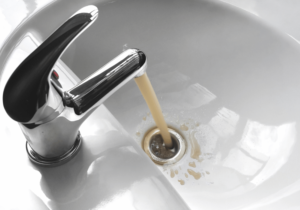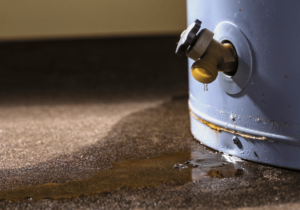A water heater should supply you with consistent quantities of hot water every day. If you discover that your water heater isn’t providing hot water like it used to, it’s important to respond quickly to the issue and call a technician as soon as possible. Some water heater issues may include leaks, foul odours, and discoloration.
No Hot Water
Depending on the unit, no hot water might be due to a few different problems. If it is a gas unit that is not producing hot water, the issue could be that the pilot light is not lighting, a lack of gas flow, or a thermocouple might not be properly sensing that the pilot light is on. For an electric heater, one thing that can cause it to not work is the failure of its heating elements. All these issues can be inspected and addressed by a professional to restore the hot water supply.
Little Hot Water
If it seems like your home is not providing enough hot water, the tank may be too small to hold the amount of hot water needed within the household. At other times, you need to raise its thermostat, especially when winter comes. A professional can make a diagnosis and fix the problem.
 Discoloured Water
Discoloured Water
If you notice discoloured water, that can be a sign of a problem. If the water is rust-coloured, the problem could be corrosion on your anode rod. Once you replace the anode rod, this should take care of the issue. If replacement is put off for a later time, the corrosion there could cause a leak in it and eventually cause a total replacement.
If you see dirty water that does not contain rust particles, it’s probably due to mineral deposits that have built up on the heating elements or inside the tank. Having your water heater inspected and serviced regularly can keep minerals from accumulating and, in turn, decreasing its efficiency.
Smelly Water
If your tap water smells like sulfur, there is likely bacteria in it. This issue can be resolved by simply replacing the anode rod. Heating the unit to 140 degrees will ensure that any bacteria left in the tank will die.
Strange Noises
Strange noises emanating from your water heater are a sign of mineral buildup on the heating elements or inside the tank. Efficiency declines when there is an accumulation of minerals, and you might even end up with a leak if the buildup is inside the tank.
 Leaks
Leaks
A leaking unit is often a bad sign. Loose pipes or a failed valve may be responsible for your water heater leaking from the top. If the leak is from the bottom, that can mean an issue with over-pressurization, a loose drain valve, or the tank is corroded. When there is corrosion or a crack in your unit then it means that it needs total replacement. Your water heater shouldn’t have water dripping from anywhere, so get those leaks repaired as soon as possible. Ask our technicians or installers about a “drain pan” for your new or existing tank to prevent further leakage.
On-Demand vs Tank
Certain applications call for a greater hot water demand than a tanked water heater can provide, but, On-Demand Water Heaters are not always the solution. Call us to see what option best suits your family’s needs!
Replacement and Installation
If the water heater is still new, the issues causing problems in it can typically be fixed with a simple repair job. Older units can start to have more problems due to worn-out or corroded components. It may be a good idea to replace a water heater that is 10 years or older in order to avoid problems with it. Newer units run more efficiently and will also lower your utility bills. They won’t require constant repairs, and a professional technician can give you an idea of whether or not your unit should be repaired or replaced depending on the issue.
When a water heater needs replacing, a technician can discuss options with you and guide you towards the best choice for your home. The options are either gas or electric water heaters in terms of fittings. What your home is capable of housing depends on the particular fittings it has. Tankless units may be an option for energy-efficient models that would meet the needs of your family and home.
Did You Know?
Inside the Installation & Owners Manual of any Tank ed Water Heater are instructions to properly drain the tank yearly to eliminate sediment accumulation at the bottom of the tank. Ask a Gillanders Service or Installation Technician for more information!
